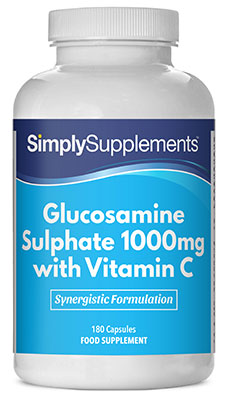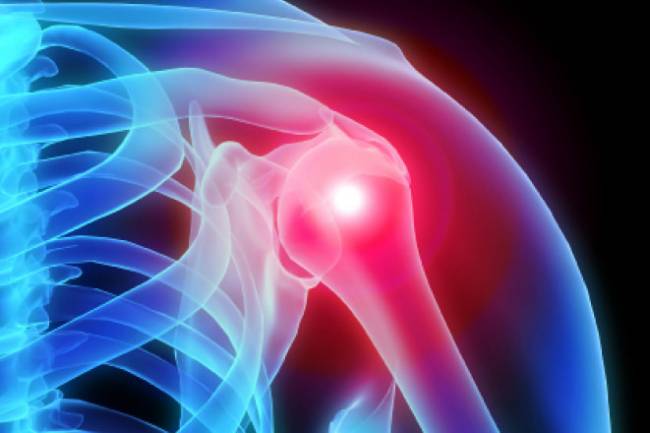Early Warning Signs of Arthritis


If you have noticed small changes to your mobility and flexibility, you may be one of the ten million people living in the UK with arthritis.
Many people struggle with pain during the early stages of arthritis, often waiting for it to become unbearable before seeking advice and treatment.
However, the symptoms are easier to treat when caught as early as possible, and with the right care you can prevent or reduce the progression of arthritis for many years.
Here we look at common signs of arthritis for osteoarthritis, rheumatoid arthritis, psoriatic arthritis
General Joint Pain and Stiffness
If you start noticing your joints and muscles feeling stiff first thing in the morning, it may be that you have the early stages of arthritis. This can also occur later in the day if you have been sitting down for a long period of time. If you suffer from osteoarthritis, the more you move the worse it often feels. If you suffer from rheumatoid arthritis, the more you move, the better it starts to feel.
As arthritis progresses, the pain will likely become present at all times of the day and will affect your mobility and range of movement. In fact, 81% of osteoarthritis sufferers say that the pain impairs their ability to perform basic daily tasks. Try placing something cold on the affected joint to contract the surrounding blood vessels and numb some of the pain. Glucosamine and chondroitin supplements have also been shown to offer some relief from arthritis, particularly osteoarthritis when caught in the early stages.
Pain in the Big Toe
A sudden and intense pain in the big toe is often a sign of gout, especially if the toe also feels hot to touch. While gout can affect any joint in the body, it commonly affects the big toe when excessive levels of uric acid build up in the form of needle-shaped crystals. It is estimated that gout affects 1 in 200 people in the UK, the majority of who are over the age of 40.
Try resting and elevating the affected toe to avoid further damage and apply ice to reduce pain and swelling temporarily. Early treatment can reduce the frequency and severity of gout ‘attacks’ so it’s important to get it checked by a doctor.
There are several nonsteroidal anti-inflammatory drugs (NSAIDs) available that are designed to lower levels of uric acid and prevent future attacks. Some people find relief by limiting their alcohol consumption and reducing the amount of protein-rich foods they eat.
Several natural remedies also show promise in the treatment of gout; bromelain from the pineapple fruit may offer some relief from swelling; apple cider vinegar may help to balance the body’s pH so that uric acid is excreted, and tart cherries contain compounds that reduce the build-up of uric acid.
Bumps on the Fingers
Bumps known as ‘bony spurs’ that appear at finger joints are a common symptom of osteoarthritis of the hand, which affects over four million people in the UK. These occur where cartilage has worn away, causing bone to rub against bone.
The resulting swelling and pain cause the hands to feel achy and hard to use, making even simple tasks such as buttoning a shirt, tying a shoelace, or grasping a door handle tricky. Bumps on the hands can also be a symptom of rheumatoid arthritis if both hands and feet are affected simultaneously.
Physiotherapy and stretching the hands can help to soothe pain. Ice and heat therapy can also relieve swelling and pain temporarily. In severe cases, surgery may be required. Chondroitin sulphate has been shown to offer some relief from hand osteoarthritis; supplementing with 800mg daily for three months relieved hand pain and improved hand function. Chondroitin naturally occurs in joint cartilage and it is thought that supplements can help to reduce the deterioration of cartilage between the bones.
Trouble Sleeping
Any type of pain can disrupt sleep, but it is particularly problematic if the pain is located somewhere that makes it uncomfortable to lie down, such as the neck or back.
Around 63% of arthritis sufferers say that pain makes it difficult to get a good night sleep. Often, the less you sleep the more pain you experience, as sleep deprivation increases the levels of inflammatory messengers circulating in the body the following day. This makes for a nasty cycle of poor sleep and constant pain that can be hard to break.
A lack of sleep can also affect your mental health by heightening feelings of anxiety and depression triggered by severe pain.
Try to establish a regular bedtime schedule and incorporate relaxing activities such as listening to soothing music or soaking in a warm bath. If you suffer from muscle cramps try adding Epsom salts to your bath. They provide an easily absorbable form of magnesium (commonly referred to as nature's tranquiliser) that relaxes muscles and promotes sleep.
Sedatives may also help you to drift off, although they may not prevent you from waking up during the night if pain is severe. Taking pain relief medication before bed may help to relieve discomfort enough for a comfortable night’s sleep. You should also make sure your pillow and mattress provide the correct support – they shouldn’t be too soft or too firm.
Fatigue
Many people with arthritis experience fatigue; for some, it comes and goes, while for others it is constantly present. Fatigue may simply be caused by a lack of sleep because of pain, or it may be an indication of an autoimmune disease such as rheumatoid arthritis, particularly if it is accompanied by loss of appetite, weight loss, and fever like symptoms that last for weeks.
In those with rheumatoid arthritis, the body is constantly exposed to high levels of chemical messengers called cytokines, which amplify inflammation throughout the body and zap energy.
Try to strike a balance between work and rest so as not to overload yourself. It’s important to keep the joints and muscles working to keep them strong. However, avoid further damage by opting for low impact exercises like cycling, walking and swimming. Visit your doctor if you think you may have developed fatigue or flu symptoms as certain drug treatments can also trigger these symptoms and your doctor may be able to recommend an alternative.
Red, Patchy or Scaly Skin
Those with psoriasis, the painful skin condition that causes the appearance of red or scaly skin, are more at risk of psoriatic arthritis - it is estimated that 1 in 10 people with psoriasis develops psoriatic arthritis at some point. While the two are closely linked, they are not mutually exclusive and occasionally people with no history of psoriasis develop psoriatic arthritis. The pain often affects more than one joint and may be present as a throbbing, tenderness or swelling.
The cause of psoriatic arthritis is not yet fully understood, but it is thought an infection in the joints may trigger inflammation in people who are already at risk of psoriatic arthritis due to genes inherited from their parents.
If you suffer from psoriatic arthritis, consult with your doctor for medical advice and treatment. Many people find some relief with over-the-counter nonsteroidal anti-inflammatory drugs (NSAIDs). A high strength omega 3 fish oil supplement may also help to relieve inflammation and reduce the need for conventional painkillers. You can also apply hot or cold packs to the affected areas to help numb pain and relax muscles.
Supplements for Arthritis
Glucosamine and Chondroitin
Glucosamine and chondroitin are a best-selling combination for the treatment of osteoarthritis. Both are natural components of healthy joint cartilage and the fluid surrounding joints, and in supplement form can help to repair and protect joints from the damage caused by general wear and tear. Glucosamine and chondroitin supplements have been well studied for osteoarthritis of the knee, hip and spine, and have been found to work more effectively when taken in combination than alone.
The GAIT trial published in the New England Journal of Medicine in 2006 found that a combination of glucosamine sulphate and chondroitin sulphate provided significant relief to participants with moderate to severe knee pain when compared to a placebo. As they work by replenishing cartilage, it can take around three months for the full benefits of these supplements to be felt.
Omega 3 Fish Oils
Omega 3 Fish Oil supplements have been shown to have powerful anti-inflammatory effects and may be particularly beneficial for those with rheumatoid arthritis or psoriatic arthritis. Fish oil is the best dietary source of the omega 3 fatty acids EPA and DHA, which block inflammatory cytokines and prostaglandins to ease swelling and pain. Studies have found that omega 3’s can reduce stiffness and pain in the joints, especially in the morning and after long periods of inactivity.
A 2010 meta-analysis found that fish oil significantly reduced joint tenderness and stiffness, and reduced the need for nonsteroidal anti-inflammatory drugs (NSAIDs). Try to eat two servings of oily fish each week and top up with a high-quality omega 3 supplement. For rheumatoid arthritis take around 2,500mg a day, for psoriasis take around 2000mg per day.

 Richard
Richard 
























